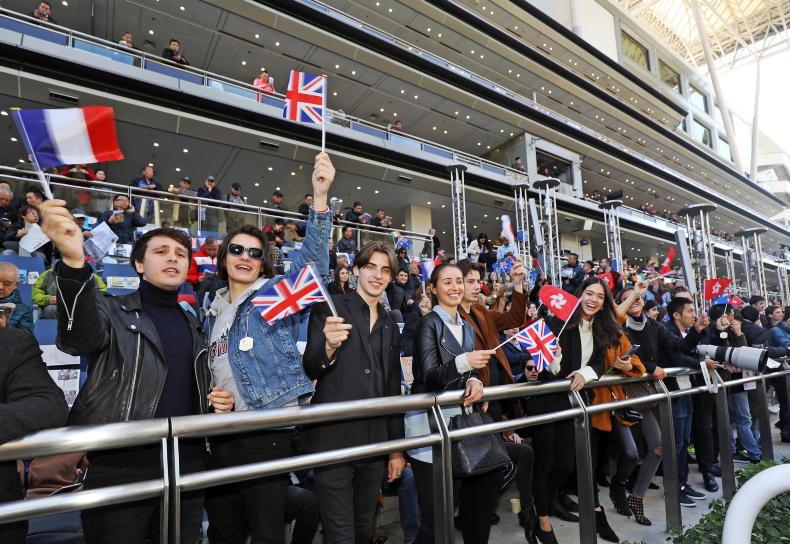THE annual all-day seminar held in Kildare this week is part of HRI’s annual commitment to drive promotion, marketing and attendances across all racecourses by sharing best practice from within Irish racing and other similar sports. It is free to attend and typically gets 100% attendance of around 120 attendees.
The constant thread running through all of the day’s fascinating and informative presentations was one of community and local engagement.
This was never more to the fore than in the opening presentation by Ada Chu, Executive Manager of the Charities Trust, Hong Kong Jockey Club. Chu spoke of the Hong Kong Jockey Club and Community Engagement programme and discussed the importance of the Hong Kong Jockey Club to the city’s community as a whole, and the value of being recognised by the general public as the primary source of community funding.
“The focus front and centre of the Club is to be seen as a world class racing club acting continuously for the betterment of our society, through an integrated charity trust,” she explained.
The Trust, one of the world’s leading philanthropic funders, has donated 77% of its profits directly to the Hong Kong community, which to date is the equivalent of almost €800m.
“This is particularly important as it enabled racing in Hong Kong to continue throughout the covid restrictions. It is the reason for our existence,” Chu said.
Social betterment
“We are unique because we are the only charitable Trust focusing on a single city. Our mandate is to donate to the social betterment of our community.
“We began as reactive funders, supporting projects solving social issues, growing in 2021 to proactive projects and have now refined our strategy, focusing on prioritised issues of positive ageing and care, youth development, health care, talent development and sports development.”
Projects include the building of multi-million euro universities, health centres and public amenities, such as swimming pools and heritage centres.
The Trust has reached 2.6m children and youths, 110m elderly people, 900,000 disadvantaged communities and 400,000 people with disabilities.
With echoes of the immense economic contribution to the State by the Irish horse racing industry, it is interesting that the Hong Kong Jockey Club receives full credit for its contributions, as well as control of where those profits go.
“The public perception of community contributions is consistently positive,” Chu said. “The Trust began eight years ago with 20 staff, we now have well over 100. Senior executives head each of the five strategic targets and project management professionals monitor and evaluate the results of our donations.
“We are conscious that our projects are complimenting government policies, not overlapping existing policies.”
Chu revealed that the HKJC’s marketing and promotion is a mix of organic and paid for, with promotion of the Club happening mainly at project level.
“We invest a marketing budget to build awareness and information, to let the general public as a whole know what we provide.”
Community relationship
The importance of a strong community relationship was emphasised by Lorraine Shiels, Head of Corporate Social Responsibility and Internal Communications at Tesco Ireland, (pictured below, right) who talked attendees through Tesco’s local community and CSR strategy.
“Our mandate is understanding local communities and how we can work with them at grass roots. Tesco provides 45,000 jobs and is the world’s largest buyer of Irish food and drink, supporting 13,000 farming families, more than any other retail company.
“The Diversity Charter Ireland is very important and cultivating local relationships, partnering smaller and more niche suppliers and helping to build thriving communities.”
Shiels spoke of the company’s surplus food donations programme and Community Fund. “Each store donates up to €2,000 between three local good causes and the community steers where the money goes. It’s all about community impact. Small helps of €500 donations, playing back to our tag Every Little Helps.” In-store staff choose the final three recipients, utilising their local knowledge. “The grass roots perspective is less about sponsorship, more about giving back,” Shiels explained.
Tesco also has a sustainability and climate change action policy that could serve as a template for racecourses.
As well as 98% recyclable packaging in store, the company reduces food waste through social enterprises FoodCloud and the food sharing app Olio.
“Local charities call to each store in the evening and collect any surplus food, which they then distribute to those who need it, ensuring it stays locally.”


 This is a subscriber-only article
This is a subscriber-only article
 It looks like you're browsing in private mode
It looks like you're browsing in private mode





SHARING OPTIONS: